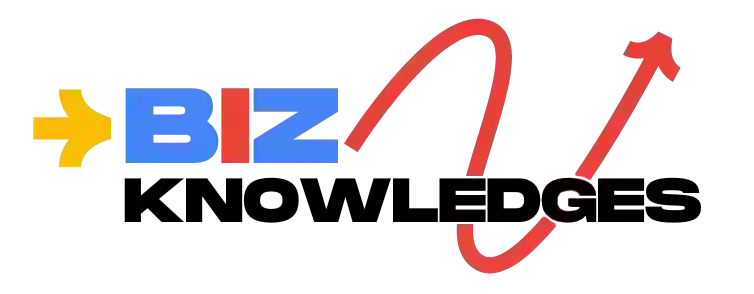Streamlining Payroll Processes for Small Businesses

Effective payroll management is essential for small businesses. It guarantees that workers receive their wages accurately and on schedule and contributes to tax compliance. Payroll administration can lead to financial stability, dissatisfied employees, and even legal difficulties. Small business entrepreneurs who already handle many hats in their daily operations may find these problems incredibly daunting.
Over time, payroll procedures have changed dramatically, moving from laborious human entry to automated solutions. This shift frees small business owners to concentrate on their core competencies instead of letting administrative duties consume their time. Payroll software and cloud-based systems have advanced so small firms can now use previously exclusive services to huge organizations.
The Role Of Technology In Payroll
Technology has transformed the payroll process. Automated payroll solutions can save small business owners numerous hours and help them better manage their time. Using digital solutions, businesses may improve accuracy and reduce errors in payroll procedures. Automated systems, for example, may easily calculate wages, withholding taxes, and other deductions, greatly lowering the chance of human error.
Furthermore, payroll software frequently incorporates functions like timekeeping, benefits management, and tax filing, offering small firms a complete solution. It is impossible to overstate the benefits of adopting technology since it increases productivity and guarantees that payroll data is frequently backed up and secured. Safeguarding confidential information is crucial in the current digital era, and sophisticated payroll systems have strict security features to guard against data breaches.
Ensuring Compliance With Tax Regulations
Compliance is critical in payroll management. Employers must stay updated with tax regulations to avoid costly penalties. Understanding the changes in tax laws and payroll tax rates is crucial for maintaining compliance. For more information on recent tax changes, visit the IRS newsroom.

Non-compliance can result in severe financial penalties and even legal action. Therefore, small businesses should consider employing tax professionals or using reliable payroll software that automatically updates tax information. This ensures that all deductions and withholdings are accurate, reducing the risk of errors. By maintaining compliance, businesses can foster a transparent and trustworthy relationship with their employees.
Benefits Of Direct Deposit
Direct deposit is a safe and effective method of paying employees. It guarantees that workers get paid on time and lowers the possibility of cheques being misplaced, stolen, or damaged. Since direct deposit offers instant access to funds—which can be essential for efficiently managing personal finances—many employees prefer it. Additionally, direct deposit saves employees time and convenience by removing the need to visit banks.
Direct deposit also increases the effectiveness of payroll processing. Electronic processing processes direct deposits instead of human handling and reconciliation, which involves physical checks. This lowers the administrative expenses of printing and delivering checks while expediting payroll. Implementing direct deposit can save considerable time and cost for small firms, freeing them up to devote resources.
Conducting Regular Payroll Audits
Frequent payroll audits are necessary to guarantee accuracy and spot inconsistencies. Businesses can proactively resolve problems by identifying payroll irregularities and inconsistencies using an audit. Periodically carrying out audits reduces the possibility that mistakes may worsen and become more severe.
Problems like inaccurate tax withholdings, misclassified employees, or disparities in overtime computations can all be found during an audit. A regular payroll audit procedure can protect a company from debt and legal issues. Frequent audits also show a dedication to accuracy and transparency, which can build credibility and trust with stakeholders and employees.
Best Practices For Payroll Management
Payroll management involves documenting processes, using user-friendly software, staying updated on tax regulations and laws, and training staff. A well-documented process ensures consistency and accuracy, while software solutions simplify complex tasks and provide real-time updates. Regularly attending workshops, webinars, or newsletters helps businesses stay informed about the latest changes in payroll legislation.
Regular training ensures staff are well-trained in best practices and regulatory changes, minimizing errors and ensuring efficient operation of the payroll system. Continuous professional development ensures that payroll personnel are skilled and capable of handling complex tasks. These best practices help businesses maintain compliance and adapt their practices to ensure efficient and accurate payroll management.
Leveraging Electronic Payment Options
Mobile wallets and ACH transfers are two examples of electronic payment methods that are growing in popularity. Employers and employees can benefit from the flexibility and convenience these solutions offer. Companies incorporating electronic payments into their payroll systems benefit from less administrative work and quicker transaction times.
Furthermore, because electronic payments reduce the possibility of fraud and loss that come with paper checks, they improve financial security. For instance, ACH transfers provide companies a dependable and affordable way to ensure workers are paid on schedule. By using electronic payment options, payroll procedures can be made more efficient and secure while reducing the operational complexity of using traditional payment methods.
Conclusion
Effective payroll management is crucial for the success of any small business. By leveraging technology, ensuring compliance, and conducting regular audits, businesses can streamline their payroll processes and focus on growth strategies. Implementing best practices in payroll management enhances operational efficiency and fosters a positive and transparent workplace environment.
